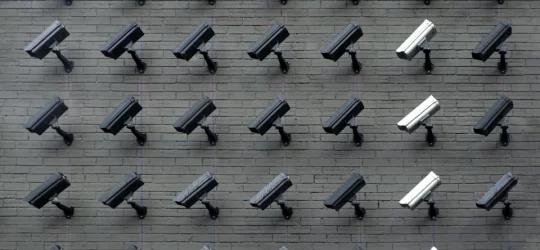Data Security and Public Records Access in South Dakota

The South Dakota Sunshine Law refers to a series of laws that were enacted for the purpose of guaranteeing that members of the public had the means to access the public records of the numerous government bodies that conduct business within the state. Much like other sunshine or public records access laws around the country, the South Dakota Sunshine Law outlines the steps and procedures that members of the general public must follow when looking to access public records and government-related information. Furthermore, the law also establishes the circumstances under which a government body is permitted to deny an individual from accessing its public records, as well as the records that are exempt from disclosure altogether.
How are public records defined under the law?
The South Dakota Sunshine Law defines public records as “all records and documents, regardless of physical form, of or belonging to this state, any county, municipality, political subdivision, or tax-supported district in this state, or any agency, branch, department, board, bureau, commission, council, subunit, or committee of any of the foregoing. Data which is a public record in its original form remains a public record when maintained in any other form.” Alternatively, as it pertains to the scope and application of the law, the South Dakota Sunshine Law applies to all levels of government at both the state and local levels, including privatized government agencies.
What are the duties of government entities under the law?
The duties of government entities under the South Dakota Sunshine Law as it relates to the accessibility of public records and government-related information includes but are not limited to:
- Government entities must ensure that all individuals have access to the public records and information that is maintained by said entities.
- Government entities are responsible for appointing an official that will be responsible for facilitating the access of the public records of said entities to members of the general public, during the normal business hours of said entities.
- Government entities are responsible for redacting confidential information that may be contained within a public record, such as victim information, prior to disclosing the applicable record to a requestor.
- Government entities are permitted to charge requestors reasonable fees for specialized services related to the administration of the public records of said entities, such as providing the requestor with copies of a public record, among other things.
- Government entities are required to maintain records of any instances in which a request to access the public records of said agencies has been denied.
- Government entities have a duty to respond to all requests to access their public records within 10 business days. However, government entities may be entitled to an extension of this time period in practice, depending on the scope and nature of the request in question.
What public records are exempt from disclosure under the law?
As it concerns the public records that are exempt from disclosure under the law, the South Dakota Sunshine Law sets forth a wide range of public records and government-related information that members of the public are not permitted to access, inspect, or copy. For instance, members of the public are not entitled to access the personal information of prospective students that attend educational institutions within the state of South Dakota. Subsequently, some other examples of public records that are deemed confidential under the law include:
- Medical records.
- Trade secrets.
- Applicant information.
- Attorney-client privilege.
- Library records.
- Applicant information.
- Professional examinations.
- Security information.
- Inmate records.
- Credit card information.
- Bank account information.
- Appraisals of land purchases.
- Employee information.
Maintaining compliance with the law
As the sections of the South Dakota Sunshine Law task government entities with redacting confidential information from their public records, officials that are employed by such agencies face an inherent challenge. To combat this issue, these officials can look to automatic redaction software. As these software programs provide users with the ability to obscure personal information in a wide range of categories, including financial information, social security numbers, and email addresses, among a host of others, these software solutions are ideal for a government official looking to protect personal data. With this being said, government officials within South Dakota can use these software programs to aid them in maintaining compliance with legislation such as the state’s sunshine law.
While studies and metrics that are used to measure state government transparency and accountability in the U.S. will undoubtedly be influenced by a multitude of factors, the state of South Dakota has consistently ranked at the lowest percentile with respect to the ability of members of the public to access the public records of government entities within the state. To this point, while the provisions of the South Dakota Sunshine Law provide individuals in the U.S. with access to the records of government agencies within the state, this access has shown to be limited in practice. As such, government officials within South Dakota will have to consider the steps that can be taken to provide citizens with more clarity and insight into the manner in which the agencies that serve said citizens function.





